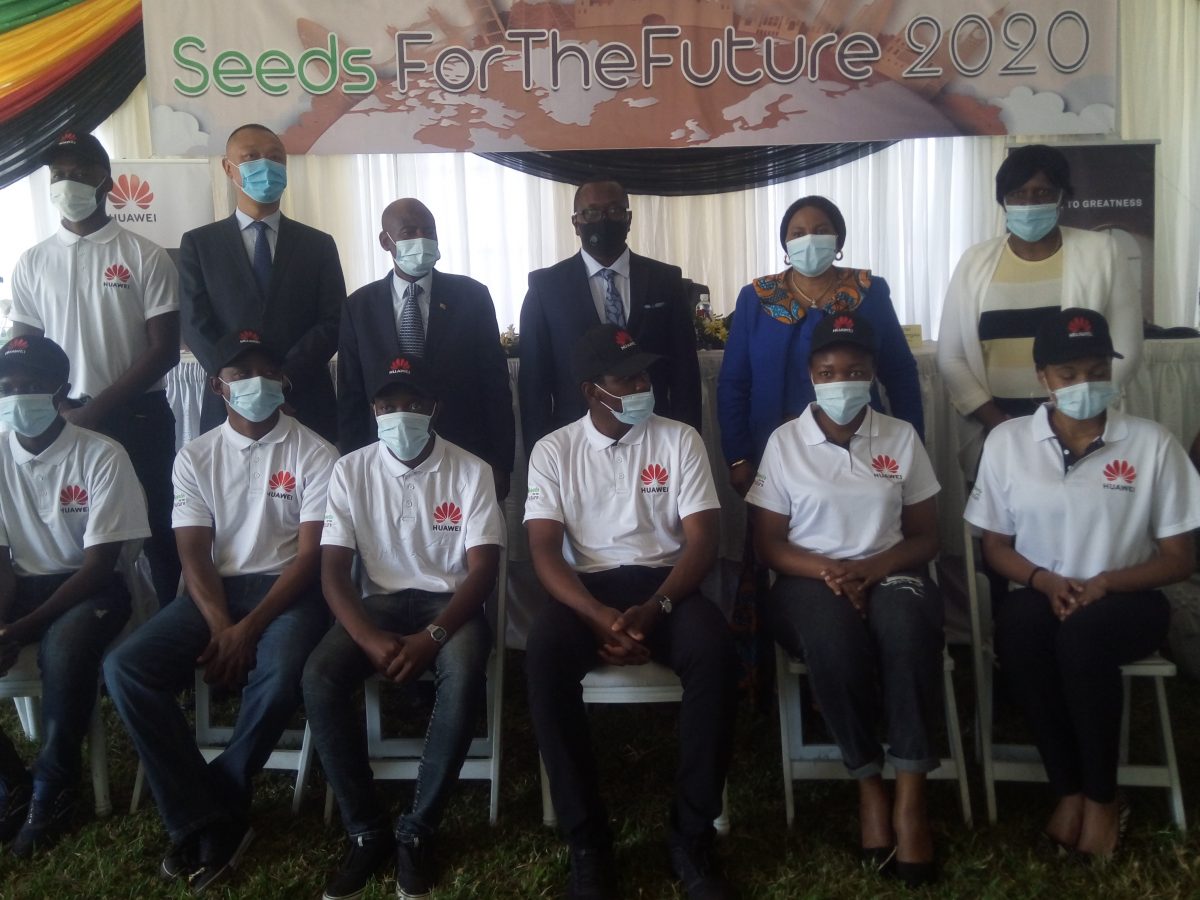The Huawei Seeds for the Future Program has been hailed as a formidable initiative that boosts solidarity, cooperation, and innovation between Zimbabwe and China through the provision of information communication technology among youths.
The initiative is a cog in the Huawei Technologies’ Global Corporate Social Responsibility drive.
“Starting out in 2008, the Seeds for the Future program has transcended all limits possible in developing, promoting, and improving ICT talent. What chiefly took me aback is the program’s pragmatic approach to imparting innovation in young minds and I would also like to underscore how the Seeds for the Future program aligns with Zimbabwe’s current Industry 4.0 transition that represents the fourth industrial revolution that has occurred in manufacturing.
“The program provides necessary training to synchronize theoretical learning with practical real-life scenarios, therefore, molding students into competent ICT personnel that accelerates industrialization and urbanization of the country,” said Kudakwashe Nzara, a Seeds for the Future 2019 Alumni.
The program seeks to reinforce the student’s technical arsenal with necessary skills transfer that enables them to identify and harness new opportunities in ICT.
Nzara said upon arrival in China, learners were acquainted with the scenic Great Wall of China and Forbidden City which to date remain my major highlights of his trip. He was fortunate to get comprehensive lessons of the Chinese language (Mandarin), some Calligraphy, and Chinese Culture which were all key for his stay in that Country. He enjoyed trying out assorted Chinese cuisines particularly the Hop Pot. He said the Chinese people are punctual, dedicated, and industrious and it is that culture that challenged and inspired me to be a driven young man he is today.
The real game changing experience of the trip came when the youths were exposed to the vast and current technologies at the Huawei Headquarters in Shenzhen.
“We received invaluable insights into the latest technology trends such as 5G, big data, Internet of Things, Artificial Intelligence and the Cloud directly from the Huawei experts. Some of the sessions like base station configurations were highly interactive and hands-on therefore equipping us with on-demand skills.
“Another mind-blowing experience that still reverberates in my thoughts is our tour of the Huawei exhibition Centre, where we observed live demonstrations of some of Huawei’s technologies and how they would address some problems crippling the world today. Having witnessed the colossal impact of technology to China’s problems and their economy, I found myself setting greater goals of where I want to be with respect to my career in ICT as well-being innovation-driven in order to solve local problems in my country with technology.”
Lillian Mandizha, a second-year student at the University of Zimbabwe doing BSc Honours in Electronics and Telecommunication Technology said it was an honour to be chosen as one of the Huawei Seeds for the Future 2020 beneficiaries.
The Huawei Seeds for the Future initiatives are meant to develop, enhance, promote and improve ICT talent, knowledge, interest, and regional involvement of young students and have recently made it accessible online due to the COVID-19 pandemic. The program gives students the opportunity to bridge the talent gap.
On behalf of the 6th group of students in Zimbabwe since the start of the initiative in 2015, Manizha said she and her team members are privileged to be chosen to tap into the knowledge hub of the leading provider of ICT infrastructure and devices, Huawei.
“This program will surely open our minds and give us a better perspective of how to advance our country and help us find innovative solutions to Zimbabwe, Africa, and beyond. Surely learning about 5G, IoT, cloud computing, and other cutting edge technologies from the very best will boost our profiles higher than we have ever dreamt of,” Mandizha said.
Officially opening the launch, Dr. Jenfan Muswere, the Minister of ICT, Postal and Courier Services said connectivity is the driver for inclusive, sustainable socio-economic development; and it is the duty of all ICT players from government to the private sector to ensure that all Zimbabweans benefit from the opportunities that connectivity brings.
He pointed out the key challenge is the low investment in technology and the lack of a large pool of skilled ICT professionals.
Dr. Muswere said the Huawei initiative is in line with Zimbabwe’s digitisation strategy since it helps cultivate and pool together ICT professionals and students that are crucial to industry development, thus boosting ICT industry growth, driving the development of different sectors and contributing to the labour market.
Mrs Chipo Mtasa, the TelOne Managing Director, in a speech read on her behalf by Mr. Christoper Muchechemera, the Digital Innovation Director in the same company, said it was an honour for TelOne to be selected to host the Huawei Seeds for the Future Program.
“The programme being launched today provides eye-opening and once-a-lifetime opportunity for young college students to get exposed and to learn about some of the latest telecommunication technologies of now and the future. Not only that, the students also get to learn and appreciate the Chinese culture and will get to know more about Huawei,” Mr. Muchechemera said.
Mr. Shao Jie, the Managing Director of Huawei Technologies Zimbabwe (Pvt) Ltd said his company is offering the 5-day online program that will embark on compulsory courses, live-streamed sessions, elective courses and free access to additional resources for self-learning about Chinese culture.
“in the second part of the program we will embark on a virtual technology journey where students will experience Huawei’s cutting edge technologies through virtual tours, presentations and exchanges with Huawei employees and learn about the latest trends and technological developments,”he added.
